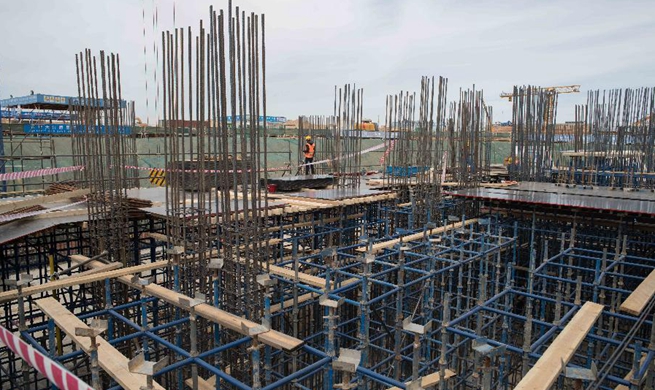by Victoria Arguello
BUENOS AIRES, March 17 (Xinhua) -- The China-proposed Belt and Road Initiative (BRI) promotes "a new type of multilateralism" and represents a "great opportunity" for Latin American countries, an Argentine expert on foreign affairs has said.
In the lead up to the second Belt and Road Forum for International Cooperation, to be held in Beijing in April, Carola Ramon-Berjano, a member of Argentina's Council on International Relations, made the remarks in an interview with Xinhua.
"I believe the initiative has great potential in terms of economic development and international cooperation. It is a very interesting concept and a framework for a new type of multilateralism spurred by China," Ramon-Berjano said.
Argentine President Mauricio Macri took part in the first forum held in 2017 in Beijing, where he said the BRI "is an opportunity we don't want to pass up."
The BRI, first proposed by Chinese President Xi Jinping in 2013, aims to drive global growth by promoting infrastructure, connectivity, financial mechanisms and public policies needed to spur trade, especially among the world's emerging and developing regions.
As a leading producer of agricultural goods, Argentina can contribute to global food security, Macri noted.
For countries like Argentina that lacks the needed infrastructure to boost trade, the BRI is an attractive and relevant proposal. But Argentina must plan well to make the most of the initiative, said Ramon-Berjano.
"Despite Argentina's great need for infrastructure, it has to ensure that it is the right kind. That's to say, that it will lead to greater connectivity not just with foreign markets, but also to greater connectivity among domestic ports," she said.
In short, Argentina's participation in the BRI should contribute to national development.
"Argentina, like many developing countries, can benefit a lot from this initiative, achieving greater connectivity and improving infrastructure at the national as well as at the regional and international levels," the expert said, stressing that it will help the country "achieve inclusive and sustainable development" in the long run.
China's evident economic and social progress over the past four decades can serve as a model, as a "fundamental experience" for other developing countries, said Ramon-Berjano.
"The forum is a great opportunity to discuss the topics of most concern abroad regarding the initiative, to clear up doubts, discuss, reach consensus and plan. Cooperation is the foundation of this initiative," she noted.

















